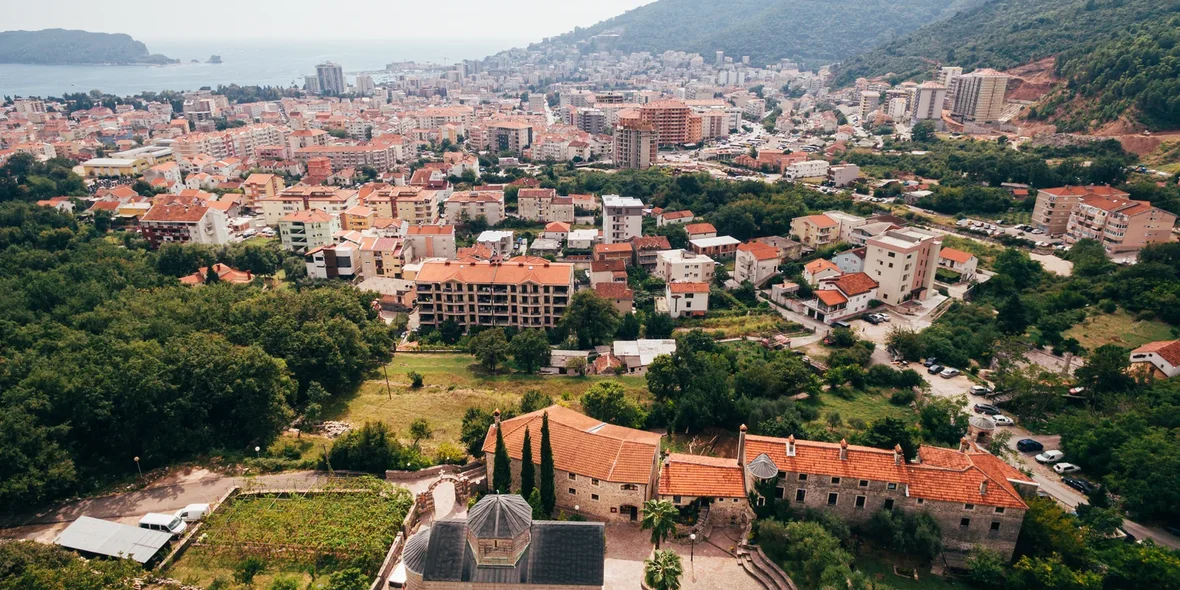
Residence Permit in Montenegro: All the Ways to Obtain It and the Nuances You Should Know About
Montenegro is increasingly on the list of relocation destinations — and for good reason. Affordable residence permits, visa-free entry for many countries and the prospect of joining the EU make this Balkan country an attractive option for relocation. But what real opportunities do foreigners have in 2025 and what will change in the near future?
Our partner from Montenegro, the founder of the real estate agency MD Realty Vyacheslav Mayevsky, spoke with Alexey Konovalov, an expert on migration and taxes in Montenegro and the founder of the company ADIONICA. He spoke in detail about all the legal ways to obtain a residence permit, the pitfalls of the registration process, and how to prepare for the upcoming changes in legislation.
What Does a Residence Permit in Montenegro Provide and How to Get It

— What are the main ways to obtain a residence permit in Montenegro as of 2025?
— At the moment, there are four main ways to obtain a residence permit in Montenegro:
• Residence permit for work. It can be obtained by joining a company or opening your own legal entity. This option is the most accessible, but is only suitable for company directors. For other employees, the residence permit is artificially interrupted after three years.
• Residence permit for real estate. If you own real estate, you can apply for a temporary residence permit, but you cannot work. After 5 years, you can apply for permanent residence.
• Residence permit for family reunification. Available to spouses and children of holders of a residence permit for work or real estate. An interesting feature is that you cannot work in the first year, but after the extension for the second year you can officially get a job without the need for a visa.
• Digital Nomad Residence Permit. Option for remote employees. A contract with a foreign company and an income of 1900 euros per month are required. A residence permit is issued immediately for 2 years, but does not give the right to permanent residence.
• Residence permit by education. This opportunity is available for school-age children and students. Moreover, when receiving a residence permit for a school child’s education, his parents can already receive a residence permit for family reunification with him. Unfortunately, such a residence permit is issued only for the duration of the school year, is interrupted for the summer holidays, and then it must be obtained again.
— What documents are required to apply for a residence permit, and what difficulties may arise?
— Particular attention should be paid to what documents Montenegro recognizes. Citizens of Russia and Ukraine do not require additional certification, while Belarusians require an apostille. It is worth adding that if the document is issued by the Belarusian embassy in Serbia, then an apostille is not required. If the country has not signed the Hague Convention, full legalization (certification by the Ministry of Internal Affairs, the Ministry of Foreign Affairs, and the consulate of Montenegro) is required.
Document requirements may vary in different regions, so it is worth clarifying the details in advance to avoid delays. In addition, if you have the opportunity to leave a power of attorney to relatives to request documents, this can significantly speed up the process.
— Is it possible to obtain a residence permit by purchasing real estate, and what conditions must be met?
— Yes, a residence permit is available by buying real estate in Montenegro. To do this, you need:
- A certificate of ownership (document of title), where you are already the owner. Unfortunately, a purchase and sale agreement is not suitable for a residence permit for real estate, as is an object under construction.
- Certificate of good conduct.
- Proof of financial security (at least 7,300 euros in the account).
Important: a certificate of no criminal record must be provided from the country of citizenship, even if you have been living abroad for a long time. In the sixth year with such a residence permit, you can apply for permanent residence.
— What does a residence permit in Montenegro give? Are there any restrictions on work?
— Montenegro ties the residence permit to a specific employer, which creates difficulties when changing jobs. If you want to move from company A to company B, you need to collect the entire package of documents again.
This is due to the historical seasonality of the labour market, when foreigners came to work only for a few months. However, in the future, as we move closer to the EU, this mechanism is likely to change.
It is also worth considering that Montenegro is reluctant to issue permanent residence and citizenship, since mass naturalization could affect the demographic and political situation in the country.
— How long does it take to process an application for a residence permit and for what reasons can it be rejected?
— According to the law, the application is considered in two stages:
- First check (10 days): the foreigners inspector checks the legality of the applicant’s stay in Montenegro.
- Second check (20–35 days): The Ministry of Internal Affairs analyzes the documents.
In practice, the deadlines may be extended, especially for residence permits for real estate and family reunification. It is important to check the status of the application; if the completed residence permit for work is not collected within a week, it may be cancelled.
— Is it possible to obtain a residence permit without being present in person?
— No, when submitting an application, you must submit biometrics — a photograph, fingerprints, and a signature sample.
— How does a residence permit affect taxes and financial obligations to Montenegro?
— If you work for one company, your employer pays your taxes for you, and you do not need to file a tax return. However, if you have other sources of income, you must file an income tax return by April 30. The Adionika. me website has step-by-step instructions and a tax return form.
— Is it possible to move the family together with the applicant?
— Yes, but documents for a residence permit for a family can be submitted only after the main applicant has received a residence permit. This is important to consider, especially if relatives have restrictions on the length of stay without a visa.
— How can I extend my temporary residence permit and after how many years can I get permanent residence?
— A temporary residence permit can be extended 5 times, after which permanent residence can be obtained by:
- Directors of companies with a share of more than 51%.
- Property owners (but only one of the co-owners, if the property is registered to several people).
Company employees and digital nomads cannot apply for permanent residence. They can extend their residence permit after 3 years of residence, but to do so, they will need to re-collect all the documents. That is, after three years of residence, a company employee will need to take a visa run and submit a full package of documents.
— How will the procedure for obtaining a residence permit change in 2025?
— An amendment to the law on foreigners related to seasonal workers is planned. No other major changes are expected in 2025.
— How will the procedure for obtaining a residence permit change upon joining the EU?
— Montenegro’s accession to the European Union will undoubtedly bring both new opportunities and certain challenges for foreign citizens planning to obtain or already having a residence permit in this country. The optimal strategy in these conditions is to obtain resident status before the country’s official accession to the EU, when the requirements are still relatively liberal, and then systematically extend it, moving towards obtaining permanent residence and potentially citizenship.
But if we talk about potential changes upon Montenegro’s accession to the EU, we can highlight both possible positive and negative changes.
Possible positive changes may include:
- Simplifying the process of obtaining temporary and permanent residence permits for EU citizens. After joining the EU, the process of obtaining a residence permit for citizens of EU countries will become much simpler.
- Rising property values. Due to the increased demand for housing in Montenegro from Europeans, property prices may rise, which is beneficial for owners.
- Free movement within the EU. After joining Schengen, citizens of Montenegro (and in the future, permanent residence holders) will be able to travel freely throughout Europe.
- Improving the standard of living. In connection with integration into the EU, wage growth, improvement of infrastructure and health care are expected.
- Reducing corruption and bureaucracy. Reforms aimed at bringing legislation into line with EU standards will simplify work with government agencies.
Possible negative changes may include:
- Introduction of a visa regime for citizens of Russia and Belarus. Montenegro may cancel visa-free entry for these countries at the request of the EU.
- Tightening of conditions for temporary and permanent residence permits. New requirements regarding financial security, length of residence and proof of integration are possible.
- Increase in taxes and social contributions. Due to adaptation to EU economic standards, tax rates and insurance contributions may increase.
- Tightening controls on migrants. New checks on sources of income, assets and reasons for staying in the country are possible, which will make life more difficult for foreigners.
For those who already have a Montenegrin residence permit, it is important to closely monitor changes in legislation and prepare the necessary documents for status extension in advance. Potential tightening of rules does not mean the impossibility of maintaining resident status, but will require more careful preparation and, possibly, fulfillment of additional requirements.
In any case, the prospect of Montenegro joining the EU makes investments in obtaining a residence permit in this country strategically justified, especially for those who are considering the long-term prospect of integration into the European community.
Author
I am responsible for editorial work. I write expert interviews and guides.





















